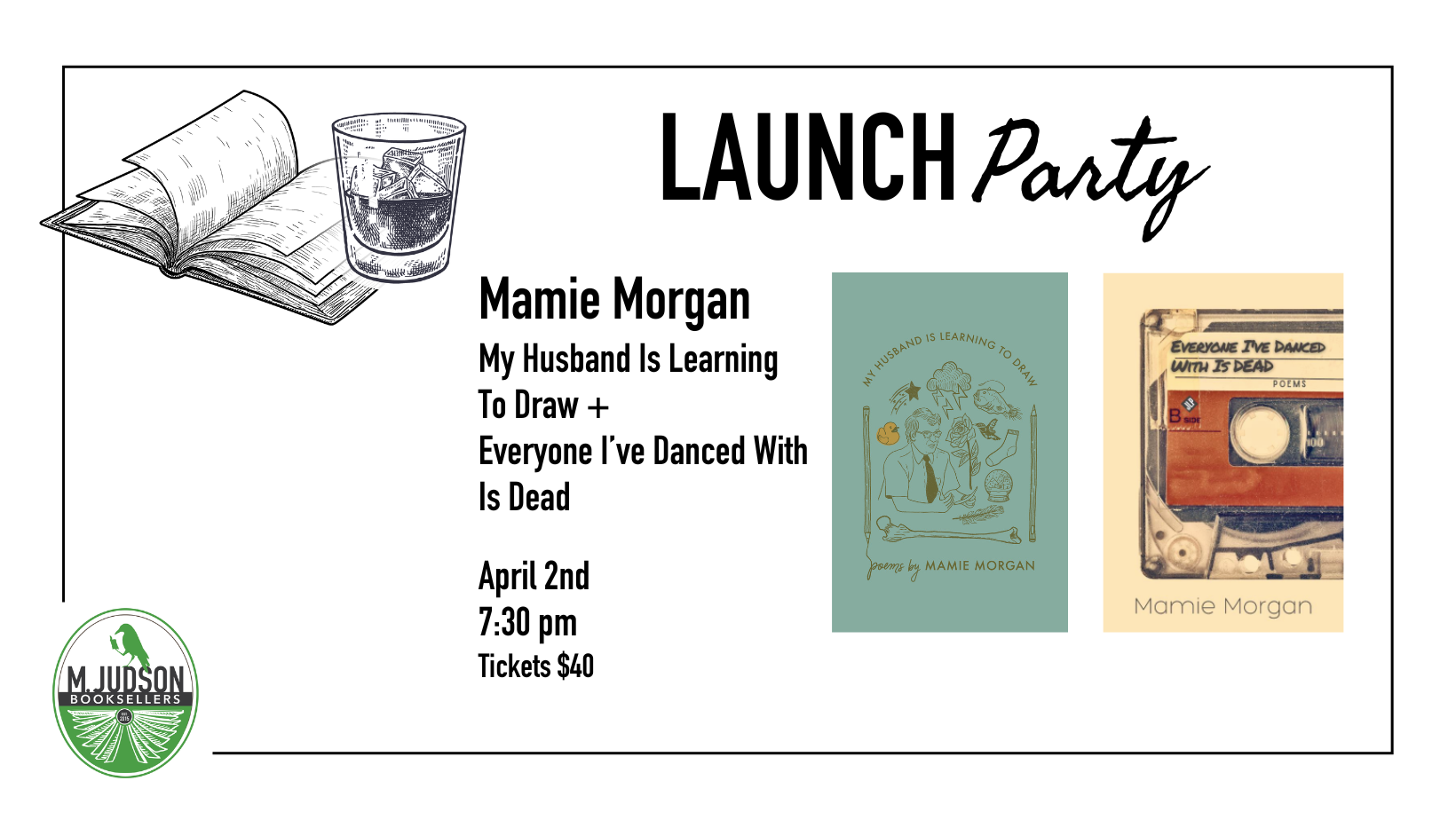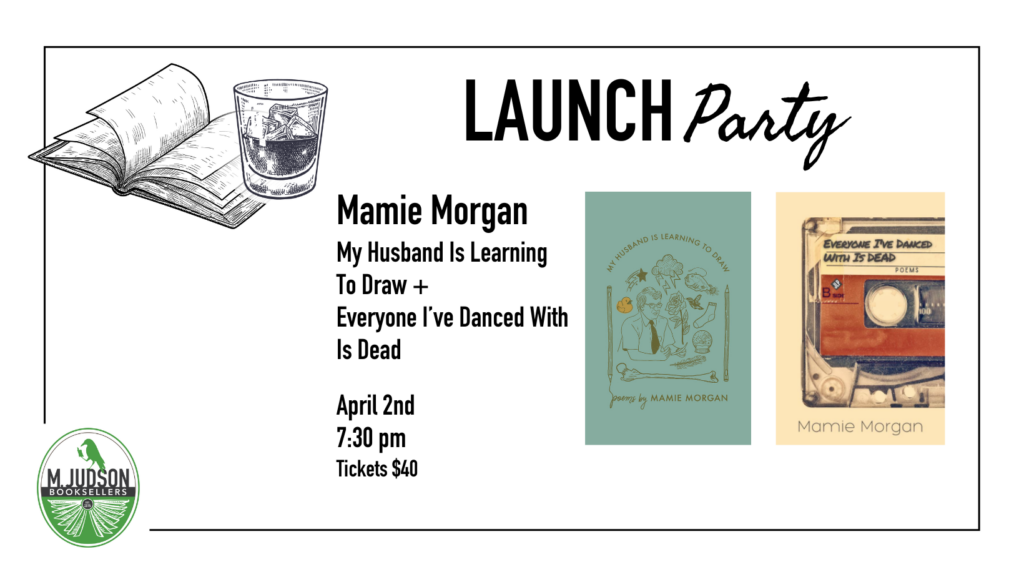
- This event has passed.
Launch Party with Mamie Morgan
April 2 @ 7:30 pm - 10:00 pm
$40.00

ABOUT THE AUTHOR
MAMIE MORGAN received an MFA from UNC Wilmington and a BA in English and Religious Studies from Wofford. Her work has appeared or is forthcoming in Washington Square Review, The Oxford American, Fish Barrel Review, Nimrod, Muzzle, Four Way Review, Yemassee, Carolina Quarterly, Smartish Pace, The Yalobusha Review, Cimarron, Inkwell, and The Greensboro Review. She lives in the woods with her husband and their two dogs, Henrietta Modine and Wednesday Stewart.
REVIEWS FOR My Husband Is Learning To Draw
“These poems speak to us like a best friend will over a reasonably prices brunch, and we’ve all got a little less serotonin than we need, so if we hear the perfect combination of words before the eggs arrive, we’ll cry right there in front of the whole gorgeous, horrible earth. And these poems are the perfect combination of words. Morgan’s voice is that of a friend we know we don’t deserve, but desperately, unabashedly adore.” – Patrick Whitfill
“My Husband is Learning to Draw reminds us that upheaval precedes creation. Like kintsugi, these poems embrace breakage, and Mamie Morgan’s lyric voice — generous, nimble, and illimitable — is the gold. To read Morgan is to be cracked open and then repaired: “half filled with sand, half somehow filled with delight.” – Kirby Knowlton
REVIEWS FOR Everyone I’ve Danced With Is Dead
“In the elegiac collection fittingly titled Everyone I’ve Danced With Is Dead, Mamie Morgan’s poems are exquisitely stitched as they offer up lamentation for, and salutation to, the dead. These are dedicatory jeremiads against loss that flame with anger, anguish, feminism, and, yes, even humor. And though they are underscored in a bladed nostalgia, they are never sentimental; instead, they are “finding new ways to feel” while “flinging every street-facing window open.” Swirling in the poetic spaces of this book, are caribou, witches, and chickens as well as cameos by Amy Poehler, Mary Oliver, and Iphigenia; but, most importantly, ascending from the book’s foundation is Morgan’s incantation for the living and the dead — the clear and sustaining phrase, “I want you alive.” – Simone Muench
“I’m not sure anymore who’s the main character…” Morgan says in one poem. And, indeed, in this exceptional, fiercely humane book, characters and stories blend fluidly one into another. These are fast talking oems, with surprising pacing and unpredictable run-on syntax, yet somehow remain plaintive and soulful. They are deeply imaginative portraits of dislocation that swerve through the realities of life-fear, anger, angst, troubling politics– yet somehow seem celebratory. I enjoyed this book immensely. I know I am reading the real thing when it makes me want to get to my desk and back to work on my own art. Everyone I’ve Danced With Is Dead is the real thing.” – Mark Cox
“The central organ pumping blood through these poems is wonderment. Morgan’s particular brand of wonder knows no hierarchies: love, betrayal, fallings out, quotidian, joy, jail, sex, school, the body, war, race, politics, and that old tricker Death all crowd around the same table. This book pulls you forward and shows you the world as it is–a mess worth celebrating, recoiling from, enduring, and embracing. These poems are built of risk and witness–importantly, they have the language and daring to match. This is one helluva barn burner.” – Michael McGriff
“Reading these poems is like sitting down with a friend for a conversation– the kind of friend you trust to tell all of the truth, but with mercy. These whip-smart poems don’t flinch, even at the hardest truths about what it means to be human – to love and to lose, to damage and be damaged, to live through moments “where the quake originates,” that make you cling to “every word that had ever made me want to stay alive.” These poems have an electric power, one strong enough to change lives. Morgan faces devastation with such an open grace and generosity that a reader can’t help but feel there’s one truth more real than any other: that even in the moments that shake us to the core, there is always hope.” – Emma Bolden
